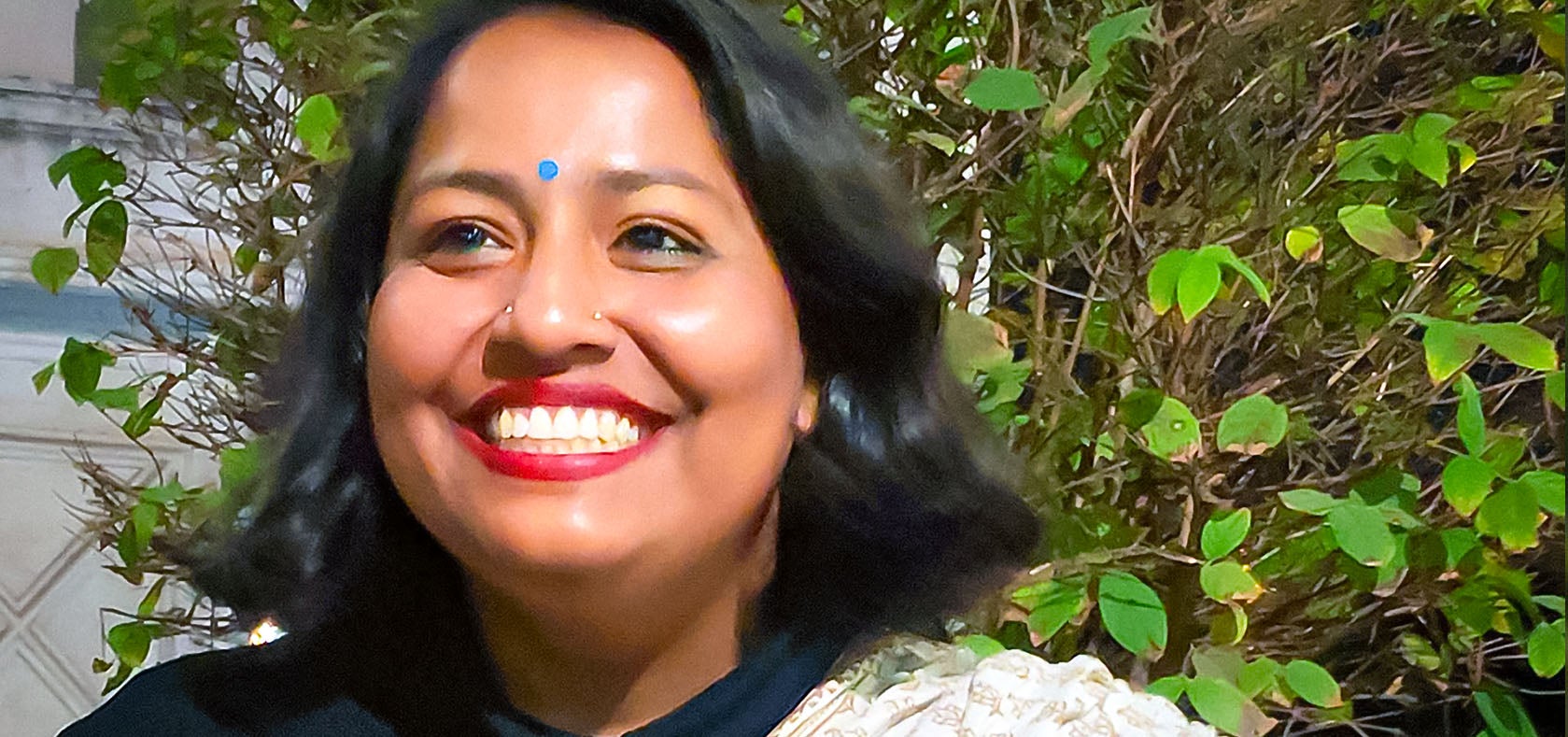From where I stand: “I want young Dalit women to be part of a society where they can voice their opinions and… dream of a life more than just basic”
Jyotsna Siddharth, actor, writer and activist from India, spoke at a side event during the 76th session of the UN General Assembly, co-organized by UN Women and the National Alliance of Women’s Organisation in India. In this interview, Ms. Siddharth talks about India’s anti-caste and young feminist movement.Date:


I was a feminist before I was born. My mother was a very prominent feminist activist and even before I knew what my caste was, or who my mother was and the relevance of her work, the conversations I was around shaped my politics and view of the world.
When I went to university, I started exploring the intersection of love, relationships, caste and religion.
I started the Anti-Love Caste Project to bring these conversations to popular culture. Through the project, I realized that people’s identity, especially that of young, marginalized women, aren’t monolithic. Identities of caste, race, gender, sexual orientation, religion – are all part of our experiences of being women in India. The narrative around caste has largely been male-driven; we rarely make the policy agendas with the people we want to make the agendas for. We need to make room for marginalized castes in feminism, and make room for gender and sexuality in the anti-caste movement.
Inter-generational alliances play a key role in understanding and furthering the Dalit movement [1]. As people of the Dalit community, we continue to battle issues of basic amenities, but at the same time our issues have also evolved. As more members of the community are able to access education, gain financial autonomy and make intersectional alliances, the issues they are contending with are sometimes different from the past. As the next generation, we must capture the lessons from the older generation, strengthen their legacy, and at the same time, build new work.
From where I stand, we need to stop looking at Dalit people only as beneficiaries or target groups for development, and acknowledge them as scholars, thinkers, experts, practitioners and people who can contribute to global discourses. I want young Dalit women to be a part of a society where they can voice their opinions and express their desires. The discourse needs to go beyond Dalit women being able to access basic amenities only, we need to give them resources, grants and scholarships so that they can dream of a life more than just basic.”
Jyotsna Siddharth leads Gender At Work in India, a feminist non-profit organization that’s spearheading intersectional and inclusive agendas, and is also the co-founder of the Anti-Caste Love Project, which promotes unique narratives around inter-caste/inter-religious love and relationships. She is speaking at a side event at the 76th UN General Assembly, titled, “Young Feminist Leadership in Policy and Public Advocacy on Intersectionality and Diversity: Women’s voices in agenda setting forums”.
Notes
[1] Literally meaning oppressed and broken, Dalit is a lower caste group in some South Asian countries